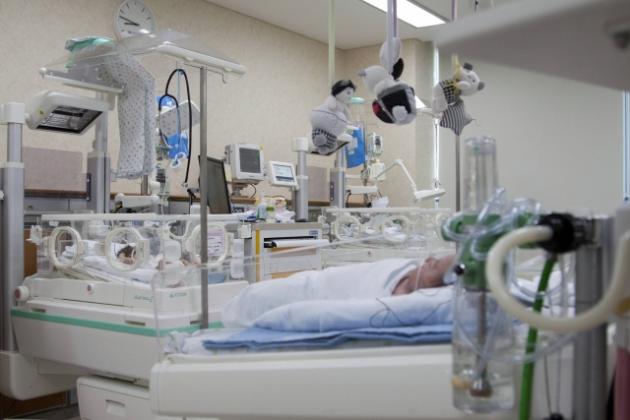
A lawsuit against a hospital seeking 1.7 billion won ($1.3 million) in indemnity for brain damage to a newborn due to medical negligence during childbirth was dismissed in the first trial, but partial compensation was awarded on appeal.
Although there was no other negligence, the hospital violated its duty of care by failing to explain the side effects of oxytocin administered during induced labor, the appeals court said.
The Seoul High Court recently partially accepted a claim for damages against a hospital and medical staff responsible for a newborn's brain injury, ordering the plaintiff to pay 20 million won ($15,463) and delayed interest.
The plaintiff was admitted to the hospital at around 7 a.m. on April 20, 2015, for an induced labor. At 9:30 a.m., an obstetrician-gynecologist in charge of the delivery monitored the fetal heartbeat with a non-stress test (NST) and administered oxytocin for induction. The dose was gradually increased to 4 gtt at 9:30, 8 gtt at 10:00, and 12 gtt around 11:30.
At 1:45 p.m., the doctor stopped administering the medication. After confirming that the fetus had descended into the pelvis, the doctor performed one downbearing and one pushing at 2:15 p.m. However, the fetal heart rate decreased to 90 beats per minute due to weakened uterine contractions, and an emergency ultrasound was performed, which revealed no abnormalities.
After one more attempt at an asphyxial delivery, the medical team secured consent for an emergency cesarean section at 2:30 p.m. and performed it. According to the medical report, the expectant mother had about 200 to 300 cc of blood in her hemoperitoneum and a complete rupture of the left uterine wall of 8 to 9 centimeters.
She gave birth at 2:45 p.m., but the newborn was not crying and was cyanotic. The medical staff aspirated the oral cavity and airway secretions and performed mask-positive pressure ventilation to induce breathing. The child was transferred to another hospital with medical staff at around 3:05 pm. The child was diagnosed with cerebral palsy due to hypoxic-ischemic encephalopathy.
The woman and her husband filed a lawsuit against the hospital and doctors, claiming that their newborn was disabled due to medical negligence and demanding 1.77 billion won in damages, plus late interest. They claimed that the doctors failed to check for fetal abnormalities during the delivery process properly, failed to adjust the dosage of oxytocin, and pushed too hard while the fetus was stuck in the pelvis, resulting in uterine rupture.
The Seoul Eastern District Court dismissed the plaintiff's claim in February 2022.
The court found that the dosage and method of administration of oxytocin by the medical staff was appropriate and that they did not neglect to observe the condition of the fetus. Therefore, it was unlikely that the administration of oxytocin caused the uterine rupture. The obstetrics and gynecology experts also agreed that the dosage and method of administration of Oxytocin were appropriate.
The plaintiff appealed the first trial court's decision, and the second trial court recognized a breach of the duty to explain the side effects of oxytocin administration.
"A doctor is obligated to explain a medical procedure likely to result in a bad outcome so that the patient can weigh the necessity and risk and choose whether to receive the medical procedure," said the Seoul High Court panel in charge of the appeals trial. "The duty of explanation cannot be exempted merely because the possibility of risks, such as sequelae or side effects of the medical procedure, is rare."
Even if it was deemed appropriate to induce labor by administering oxytocin in light of her condition at the time, the doctor was obligated to first explain to the plaintiff the necessity and side effects of administering oxytocin and to allow her to choose between induction of labor by oxytocin or cesarean section, the court said, adding that there is no evidence in the medical records that the doctor fulfilled this duty of explanation before inducing labor.
After dismissing the plaintiff's all other claims, the appeals court ruled that the hospital and the doctor should jointly pay 20 million won for the breach of the duty of explanation.

